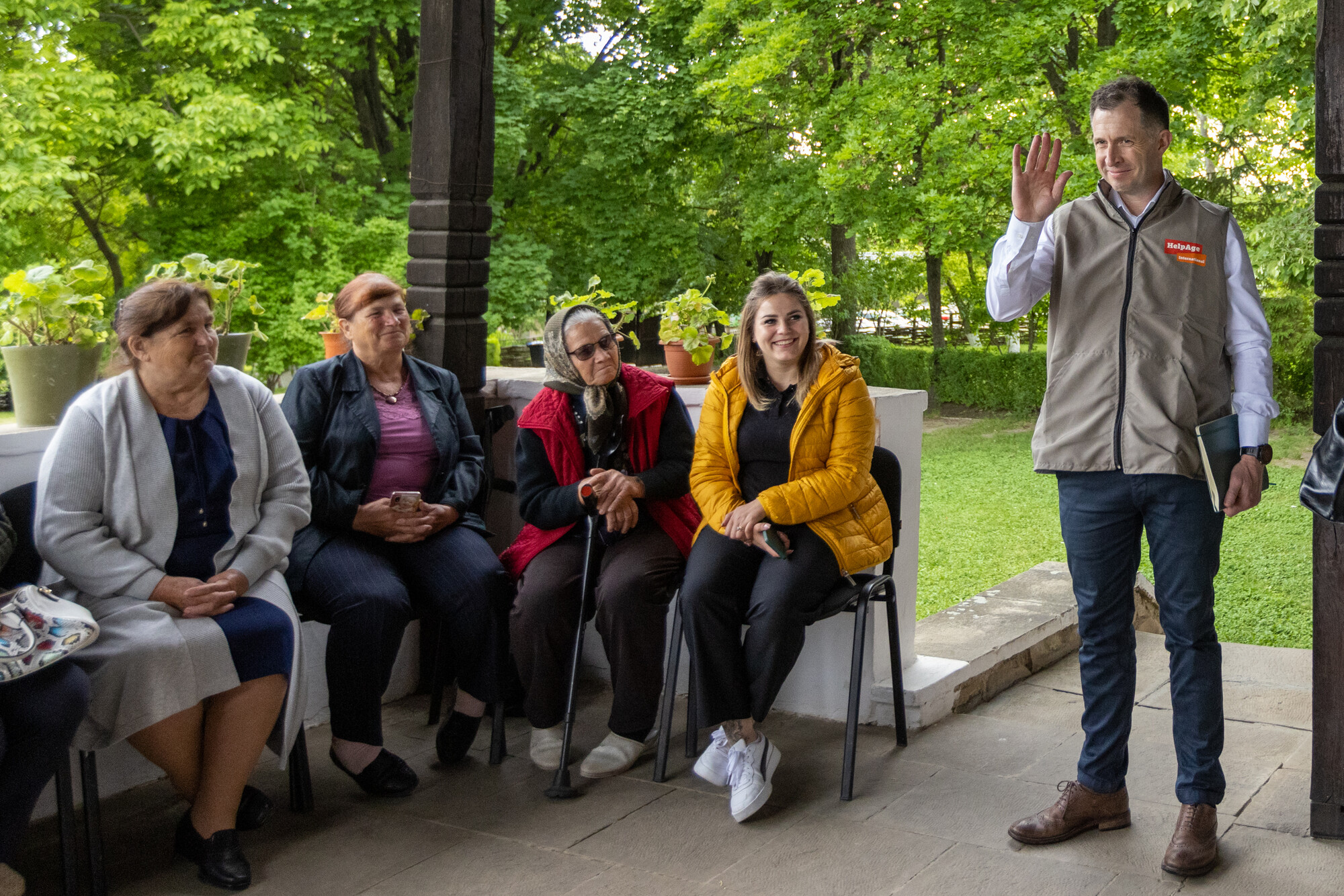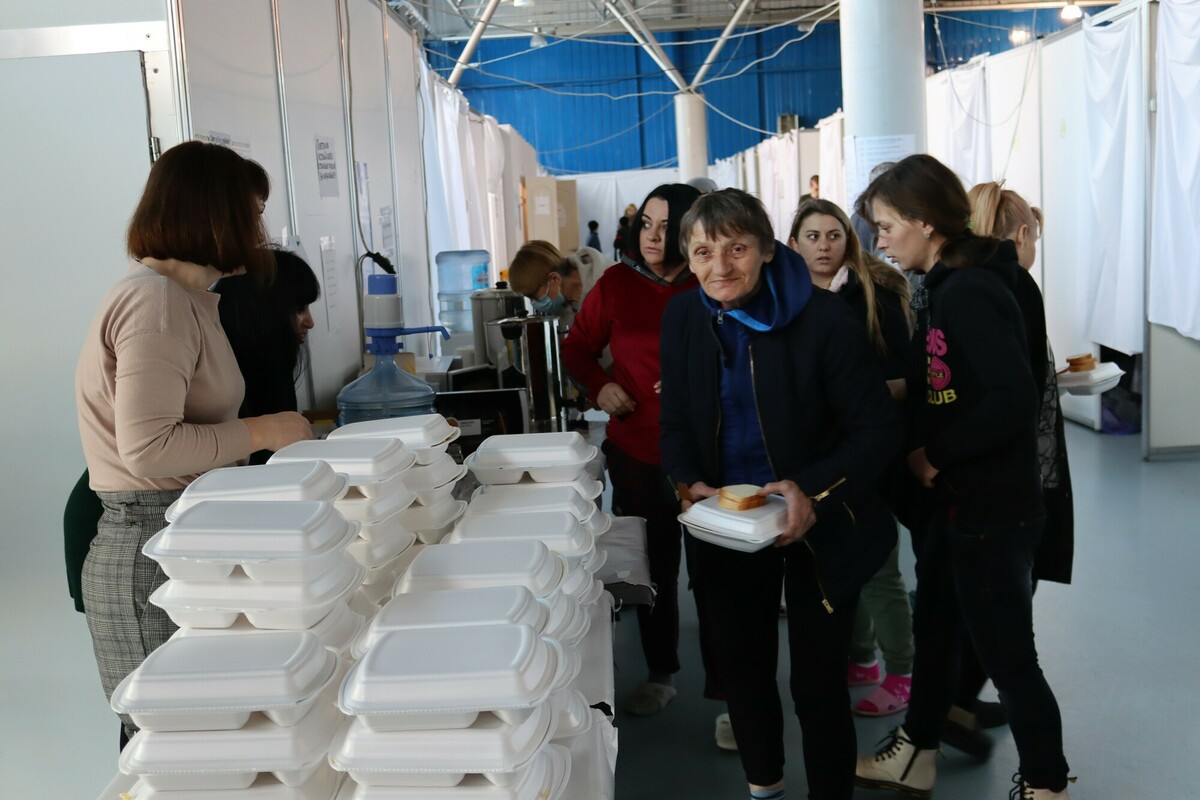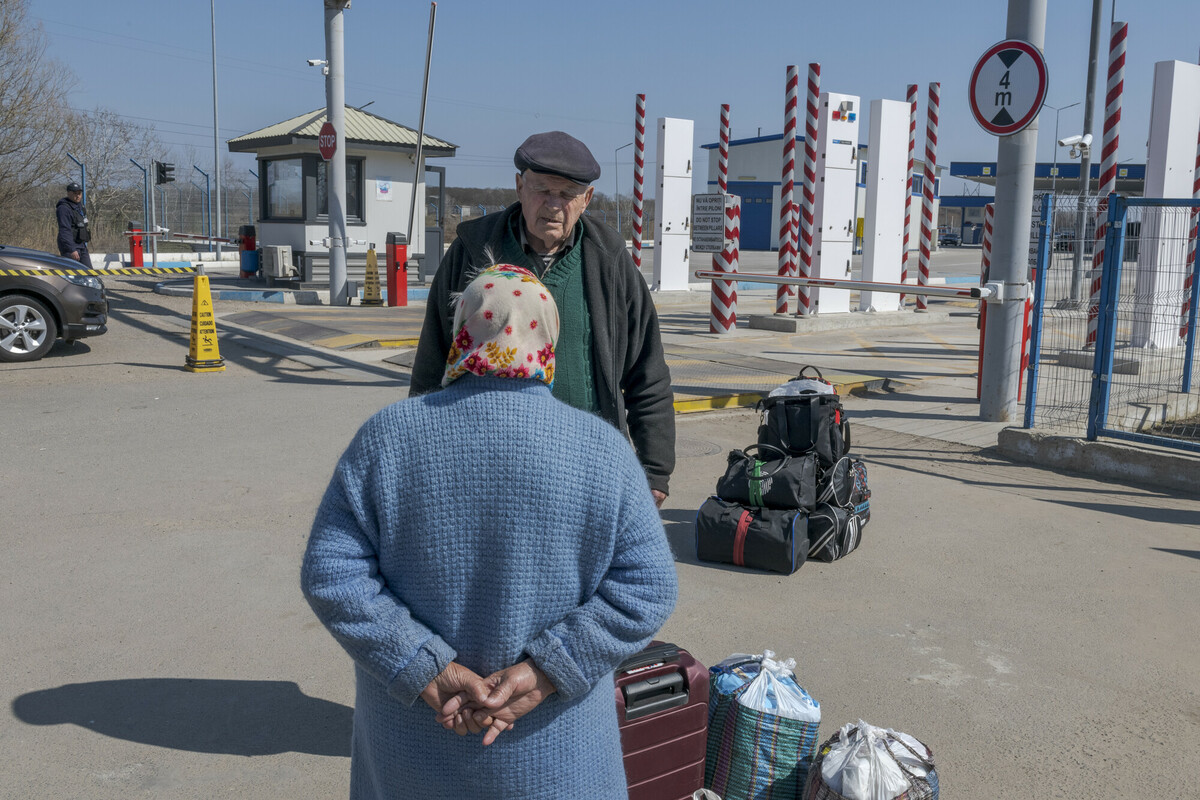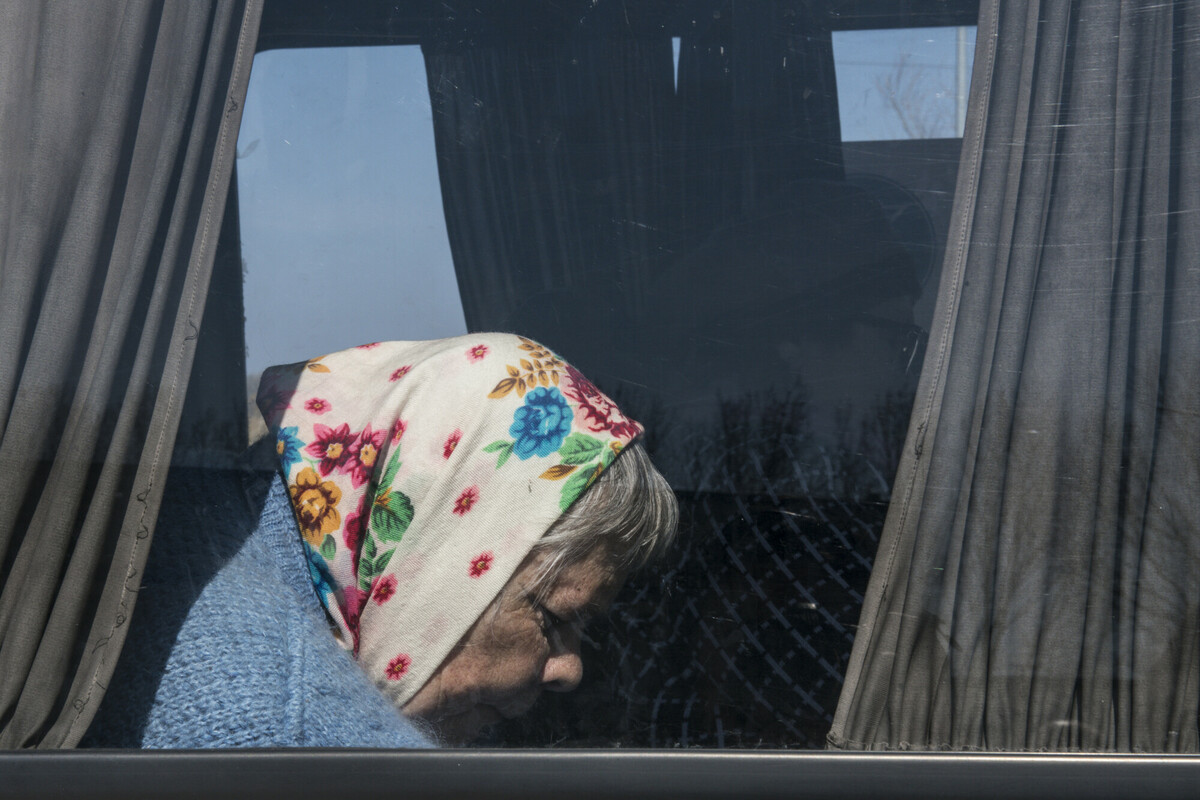Justin Derbyshire, CEO HelpAge International
It’s taken a while to process my visit to Moldova where I saw the humanitarian response to support Ukrainian refugees, some of whom I had the privilege to meet.
In terms of a humanitarian response, I have seen nothing like it. The Moldovans have opened up their homes, village halls and children’s centres to support their ‘brothers and sisters’ as they call their Ukrainian neighbours, with unprecedented generosity and love.

Justin Derbyshire, CEO HelpAge International, meeting with older people and HelpAge staff in Moldova. © Victor Tocan / HelpAge International
Existing centres, like the refuge centre for survivors of domestic abuse in Chirsovo, in the south-east of the country, have adapted to also give shelter to refugees and do all they can to give them what they need. There, this includes comfortable rooms, safe spaces for adults and older women, even soft flooring in the children’s play area in blue and yellow to match Ukraine’s flag.
Practically speaking, the accommodation centres I visited are well-equipped with washing machines, dishwashers, hot meals, doctors and counselling support that many refugees in other corners of the world could only dream of.

Ukraine refugees in Moldova at MoldoExpo, a centre hosting refugees in Chisinau.
© Andrei Bordian/HelpAge International
There is certainly a lot to learn and reflect on for elsewhere in the world and for the future.
But alongside all of this is a constant sense of grief, fear and despair that gnaws away.
Wherever we went, children gravitated towards me and the other men in our group. It was a level of attention I’ve not experienced before, but an understandable one when thinking of the absent fathers, uncles and brothers fighting in Ukraine that the children desperately miss.
Mothers were subdued: they and others frequently checking their phones for word from their sons, their husbands, and loved-ones, their minds racing on what might have happened as each hour, day, week might pass.
The trauma is etched on all their faces.
Those who spoke with me were predominantly older women who had left their homes within the first two weeks, grabbing a suitcase to be picked up by relatives, walk some way, borrow a car, take the bus – whatever means available to reach the warm arms of Moldova. But the trauma still lingers – along with the angst and sense of helplessness for sons they have left behind and what the war might bring.


Ukrainian refugees at the Palanca border in Moldova. © Israel Fuguemann/HelpAge International
I met Irina, a woman of about 60 years who arrived here with her daughter and her 5-month-old grand-daughter. She told me how uncertainty for the future added to the bitter taste of fear. How long would she be able to stay, she asked, having initially been told she could be there for three months? Her options after the designated three months without a visa are to register as a refugee or to go back and re-enter.
The pain is also direct. Irina’s family has been joined by her daughter’s mother-in-law. The despair of the woman, now 85, was raw as she told me of her escape from the family home in Voznesensk in southern Ukraine, where her husband was tragically killed by the shelling.
There’s also the fear on how the war might play out – a fear felt across the country one way or another.
What if Russian troops advance towards Odessa near the Moldovan border? What will happen in Transnistria and how will it impact the Moldovan part of the country? Where will Moldovans be able to flee: to Romania or other parts in Europe as many pro-European citizens of Moldova wish? Big geopolitical questions, ultimately around security, that only feed into individual anxieties and heart ache.
Since the Russian military advance into Ukraine, more than 507,000 refugees have arrived in Moldova, Europe’s poorest country with a population of just over 2.6 million. While most have either passed through to Romania or returned to Ukraine – largely to check on their homes and property, 86,000 people have stayed.
During this time, HelpAge’s country team in Moldova has delivered 55% of all the food provided to refugee centres across the country. Food and hygiene vouchers have also been distributed, while 30 refugee centres have also been given hygiene packs that include mops, washing liquid, soap and hand sanitiser.
The number of refugees is dropping but there is no room for complacency.
Plans to modify the provision of food in line with current needs and to develop safe spaces for vulnerable groups, including older people, show how we will adapt and continue to make sure that the interests of older people are at the heart of the response. Our focus now is on the longer-term needs of refugees planning to stay for as long as the war should last and, of course, how to continue to develop our support to Moldovans.
If there is a big push in the south or south-west of Ukraine, we will see more people coming across the border. What is clear to me is that we – and Moldova – will be ready to help refugees arriving here so they can begin to piece together a new chapter, however long it might be.
Learn more about how we are supporting older people affected by the war in Ukraine.
